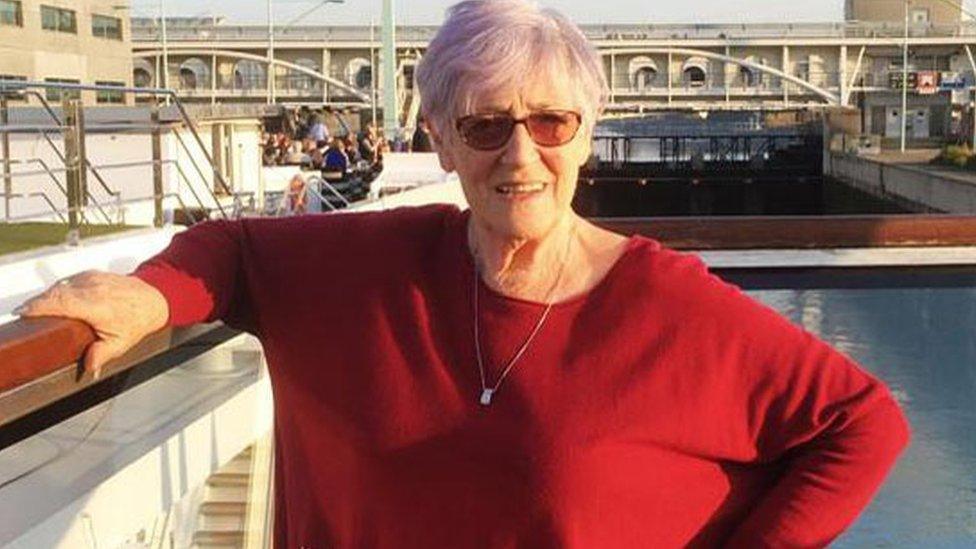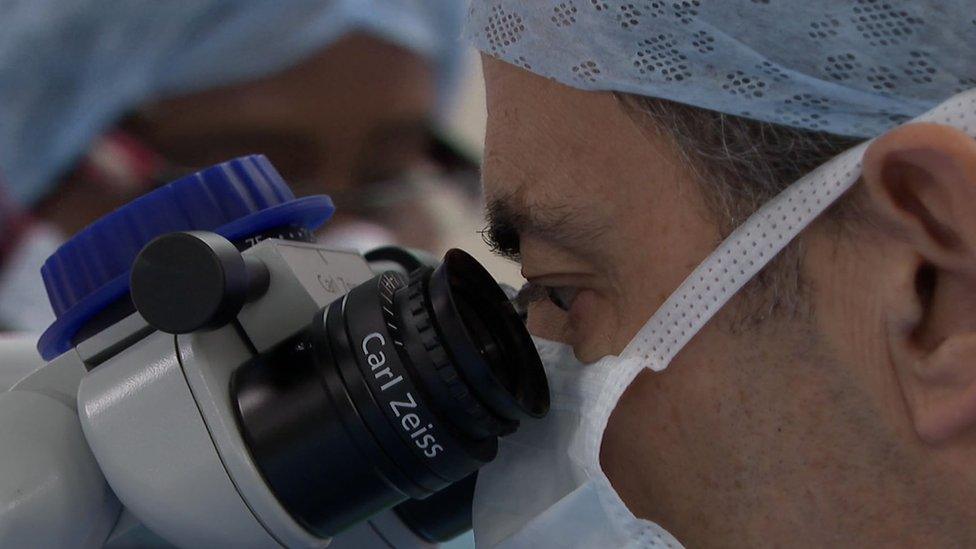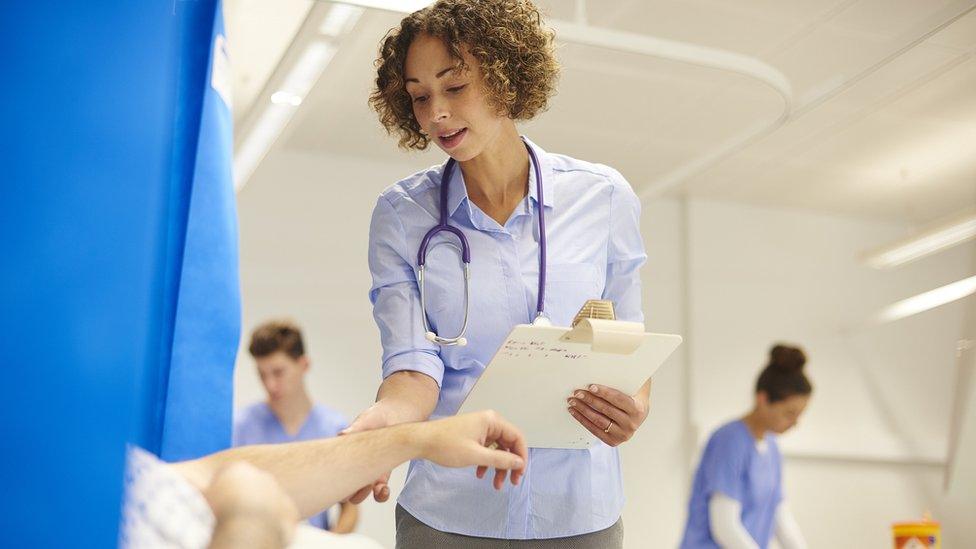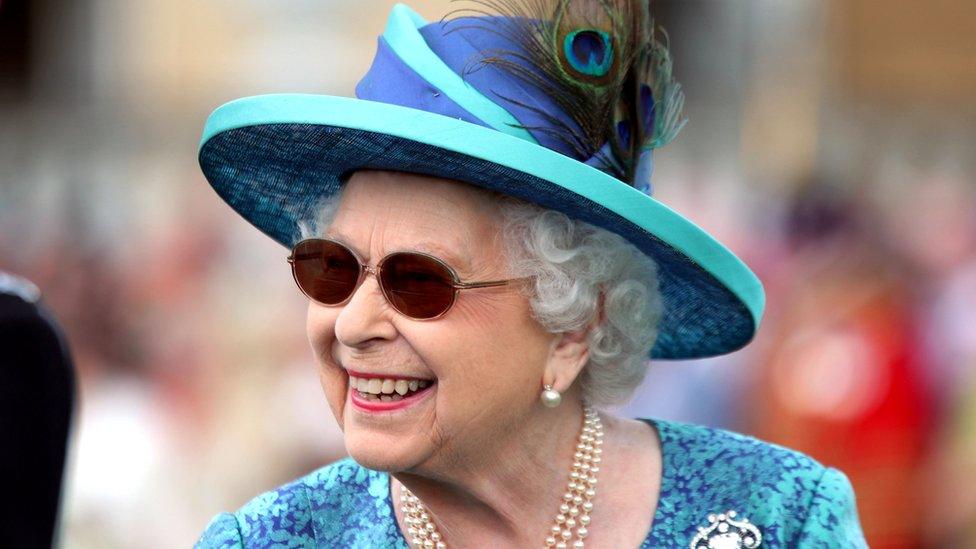Eye hospital in 'cataract drive' to cut Covid backlog
- Published

Brenda Silverman was one of the first patients to be treated as part of Moorfields' "cataract drive"
One of the world's largest eye hospitals is quadrupling its number of cataract operations, in an attempt to tackle the backlog caused by Covid-19.
Moorfields Eye Hospital, in London, is aiming to perform nearly 1,000 cataract removals in six days
Waiting lists for all planned procedures in England are at record levels after many services were paused.
Over two million people have waited over 18 weeks for surgery, the highest number since records began in 2007.
In July, NHS trusts in England were told they should get back to about 80% of last year's levels of in-patient procedures by the end of September.
Cataracts are cloudy patches on the lens that cause loss of sight.
And surgery to replace the affected lens with an artificial one is the most commonly performed operation in the UK.
It usually takes about 20-40 minutes under local anaesthetic.
And Moorfields aims to have patients in and out within 90 minutes.
'In focus'
One of more than 100 patients being operated on at the specialist hospital in a single day, Brenda Silverman, 77, had to isolate for three days, and take a coronavirus test, before her surgery could go ahead.
Before the operation, she said: "I haven't been seeing so well.
"The glare and the blinding at night is awful."
And afterwards, she said: "Everything is in focus.
"There's nothing I can't see.
"Everything is bright and cheerful."

Cataract service director Vincenzo Maurino said Moorfields had had to rethink "almost everything to make this possible".
"Doing four times more what we were doing will ensure our waiting list, which has gone up to four months, will come down significantly," he said.
"Also, we don't know what the future has ahead so we want to learn from this experience, repeat it or find other ways or be adaptable."
The "cataract drive" will use eight operating theatres, including those at Moorfields's private facility.
And 80 St John Ambulance volunteers will assist with pre-operative assessments and accompanying patients.
'Worrying symptoms'
An NHS official said: "Elective surgery has already rebounded from around a third of its usual rate during the peak of Covid to well over two-thirds in August, with further increases since then.
"Staff are working hard to ensure that clinics, diagnostic facilities and theatres are as safe as possible.
"So if you or a loved one have worrying symptoms, please don't put off seeing your GP.
"And if you're then asked to attend a hospital appointment, please do."

TASTE AND SMELL: How are they connected?
COVID-19 AND FOOD: How has lockdown changed what we eat?

- Published10 September 2020

- Published8 June 2018
